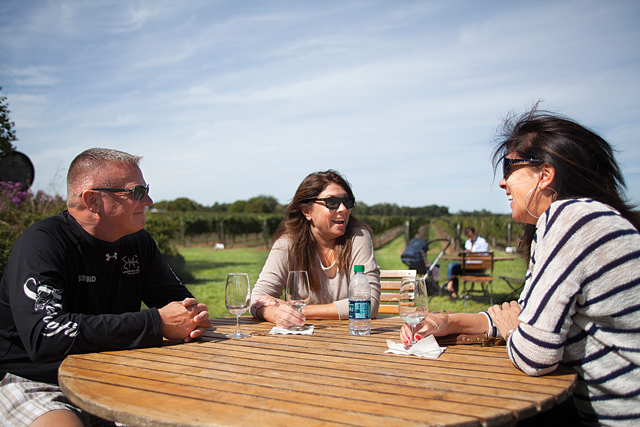New legislation aims to limit tax-free wine tastings

A new law passed by state lawmakers could bring radical change to how alcohol tastings are served on the North Fork.
In a bill passed by both the State Assembly and Senate on their last day of session June 20, changes would be made to the tax law as it relates to wine, beer, cider and liquor products.
Aiming to define what constitutes a tasting for tax purposes, the law would set the following standards for samples: No more than six samples of wine, not exceeding three ounces each, may be provided to a person in one day, according to the legislation. It would also regulate cider and beer — no more than five samples of beer at five ounces each and liquor —no more than three samples of liquor, not exceeding one-quarter fluid ounce each.
“Because wineries make more than six wines, we view this as overly restrictive,” said Steve Bate, acting director of the Long Island Wine Council, in an email. “We believe wineries should be able to sample their full range of products.”
Currently, the state provides wineries, breweries and distilleries with a state sales tax exemption for on-site tastings, which state lawmakers extended in 2017. Using tourism to justify the new legislation, the bill reads: “Increasingly, destination craft breweries, wineries, cideries and distilleries have become an essential part of [the tourism] industry. In recognition of this growing tourism sector, the legislature last year amended New York’s Tax law to exempt from sales tax tastings held by the aforementioned craft alcoholic beverage makers, thereby encouraging continued growth in such businesses, which contribute substantially to their local communities. This bill provides the necessary clarity and uniformity for effectuating the provisions of said law.”
As written, the legislation also includes a provision that restricts those under 21 from serving a sample or handling any open container of beer, cider, liquor or wine. Though it remains illegal to consume alcohol in New York for anyone under 21, employees can serve it at bars, restaurants and tasting rooms at 18.
The restriction puzzled Mr. Bate, who said that should have been addressed in the state’s consolidated alcoholic beverage control laws.
“Either way, it would be a significant change from what we’ve always understood the policy to be from the [State Liquor Authority], which is that it’s acceptable for staff between 18 and 21 to work in tasting rooms as long as there’s an adult owner or authorized agent supervising. This flexibility has been very important for small, family-owned wineries that need to rely on 18+ aged children or young adults during busy periods,” Mr. Bate said.
Sponsors of the bill have indicated that they would remove that restriction before sending the bill to Gov. Andrew Cuomo for signature or veto.








